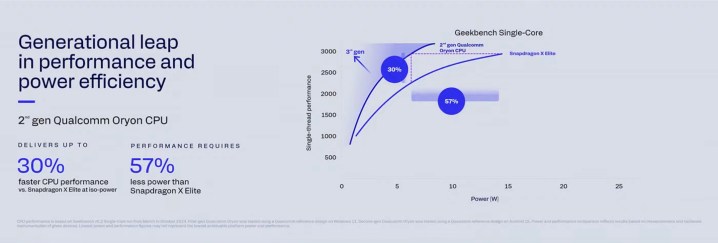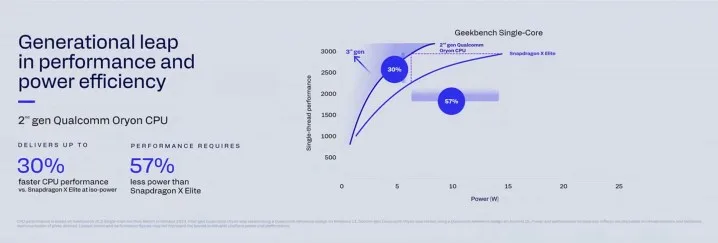During its recent Investor Day event, Qualcomm announced that its forthcoming PC processor, the Snapdragon X Elite Gen 2, will be powered by the Oryon v3 CPU. This revelation took many by surprise, particularly as the Oryon v2 had just been unveiled the previous month, with plans to integrate it into the Snapdragon 8 Elite chipset designed for smartphones.
Given that the current Snapdragon X Elite leverages the Oryon v1 CPU, it was widely assumed that the second-generation chip would utilize the second-generation CPU as well. However, it appears that the PC variant will bypass this iteration completely.

Currently, the Oryon v2 is touted to be 30% faster and 57% more energy-efficient than its predecessor, with the forthcoming v3 expected to surpass these capabilities. However, as the third generation is still under development, detailed specifications are scarce, and a formal announcement is not anticipated until the next Snapdragon Summit, almost a year away.
For the moment, Qualcomm is generating excitement among investors and audiences by promising enhancements. To make a significant impact in the market, Qualcomm will need to deliver performance levels that rival current Apple silicon. At this point, it’s unclear if that will be achieved.
Power efficiency has become a hallmark of Apple’s silicon chips, significantly contributing to the exceptional battery life of Mac devices. The new M4 chips are equipped with “efficiency cores” that can perform equivalent tasks to “performance cores” while consuming 93% less energy.
If that figure sounds impressive, that’s because it’s a standout achievement — making it a formidable challenge for Qualcomm to match. However, healthy competition is crucial for driving innovation in the industry, and even Apple enthusiasts should root for Qualcomm in this scenario.








